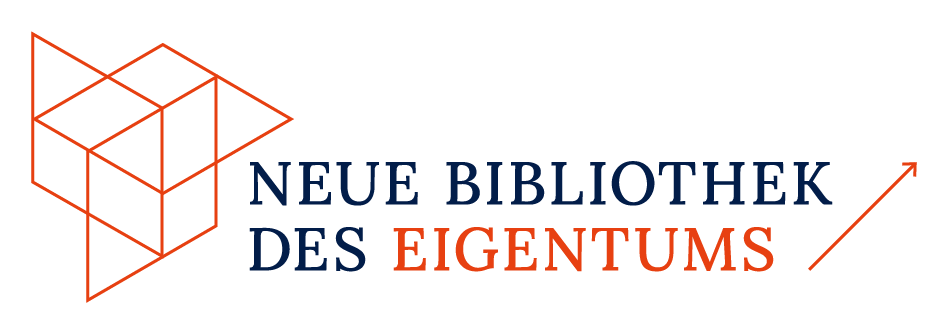Hybrid ownership structures in state capitalism: Ownership-based society, socio-economic differentiation and Governmentality analysed through the example of Shenzhen, China

Outline
The project explores the interdependencies at play between the hybrid land ownership rights and the emergence of structures that are characteristic of property-based societies following China’s transformation into a market economy. It further investigates how this process yields new relationships between state and society (Governmentality).
In a case study, the researchers analyse five ‘joint-stock cooperatives’ in Shenzhen, which operate both as parafiscal and corporate entities in the context of Chinese ‘urban villages’. The data are collected in semi-structured and standardised interviews for a range of stakeholder groups, including representatives of the aforementioned organisations and companies and residents of the urban villages.
Project activities
Publications
Scientific publications
- Basso, Frédéric; Herrmann-Pillath, Carsten (2024): Embodiment, Political Economy and Human Flourishing: An Embodied Cognition Approach to Economic Life, London: Palgrave Macmillan.
- Cheng, Jing; Herrmann-Pillath, Carsten; Li, Ling; Guo, Man (2024): “Shareholding cooperatives in Shenzhen and the revival of ‘filial piety’ as a core value of Chinese ethical life", In Carsten Herrmann-Pillath; Qian Zhao (eds.), East Asian Ethical Life and Socio-Economic Transformation in the Twenty-First Century The Ethical Sources of the Entrepreneurial Renewal of Companies and Communities, London: Routledge.
- Herrmann-Pillath, Carsten (2024): “Imagining Utopia in Eco-Social Transformation. More-Than-Human Property and Gift-Exchange Between People and Nature”, In: Walter Otto Ötsch, Birger P. Priddat, Steffen W. Groß (eds.) Das Imaginative der Politischen Ökonomie, 307-328.
- Herrmann-Pillath, Carsten, Zhao, Qian (eds.) (2024): East Asian Ethical Life and Socio-Economic Transformation in the Twenty-First Century. The Ethical Sources of the Entrepreneurial Renewal of Companies and Communities, Routledge.
- Herrmann-Pillath, Carsten (2023a): “Cultural Foundations of Economic Behaviour in China”, In: Jane Nolan, Zhao Shuming, and Ken Kamoche (eds.) Routledge Handbook of Chinese Business and Management, , 34–55, 1. Aufl. London: Routledge. DOI: 10.4324/9780429448935-5
- Herrmann-Pillath, Carsten (2023b): “The universal commons: An economic theory of ecosystem ownership”, In: Ecological Economics Vol. 208 (2023). DOI: 10.1016/j.ecolecon.2023.107822.
- Herrmann-Pillath, Carsten (2023c): "Sharing planet Earth: Overcoming speciesism in economics", In real-world economics review 106, December, 113-121.
- Herrmann-Pillath, Carsten (2023d): "Modi der Appropriation und nicht-menschliches Eigentum am Land. Wege zu einer geoethischen Revolution des Rechts", In: Zeitschrift für Wirtschafts- und Unternehmensethik 24 (3), 337–59. https://doi.org/10.5771/1439-880X-2023-3-337.
- Herrmann-Pillath, Carsten, Man, Guo (2023): “The Cultural Governance of Death in Shenzhen”, In: The China Quarterly. DOI: 10.1017/S0305741022001898. A summary audiobook of this article can be found here
- Herrmann-Pillath, Carsten, Zhao, Qian (2023): “The Cultural Meaning of ‘Market’ in China and the Western tradition: Worlds Apart?”, In: Hollstein, Bettina; Rosa, Hartmut; Rüpke, Jörg (eds.) (2023), The Study of our Relationship to the World, Frankfurt am Main and New York: Campus Verlag.
- Guo Man, Pan Liqun, Carsten Herrmann-Pillath, Li Ling, Cheng Jing (2022): “Perceptions of Wealth and Attitudes Towards Redistributive Policies in Urban Villages of Shenzhen, China.”, Working Paper Nr. 3, Sonderforschungsbereich/Transregio 294 "Strukturwandel des Eigentums".
- Cheng Jing, Carsten Herrmann-Pillath, Li Ling (2022): “The Three Modes of Appropriation. Lessons of Chinese Practice for Theorizing Property.”, Working Paper Nr. 1, Sonderforschungsbereich/Transregio 294 "Strukturwandel des Eigentums".
- Herrmann-Pillath, Carsten, Man Guo, Xingyuan, Feng (2020): Ritual and Economy in Metropolitan China: A Global Social Science Approach, Routledge.
Media and podcasts
- Herrmann-Pillath, Carsten (2022): “Ecology and more-than-human property”, in: blog of the Collaborative Research Centre “Structural Change of Property”. (published 11.07.2022)
Lectures
- "Chinas Stellung in der Welt. Historische Perspektiven für die Gegenwart", lecture on 16 May 2024 as part of the lecture series "Chinese Worlds" organised by the China Competence Platform for Universities and Research Institutions in Thuringia (Friedrich Schiller University Jena).
Events
- Conference “East Asian Ethical Life and Economy in the 21st Century” (24. - 25.11.2022).
- Workshop “Legal pluralism and land ownership in Shenzhen, China” with Peter Ho (08.04.2022).

